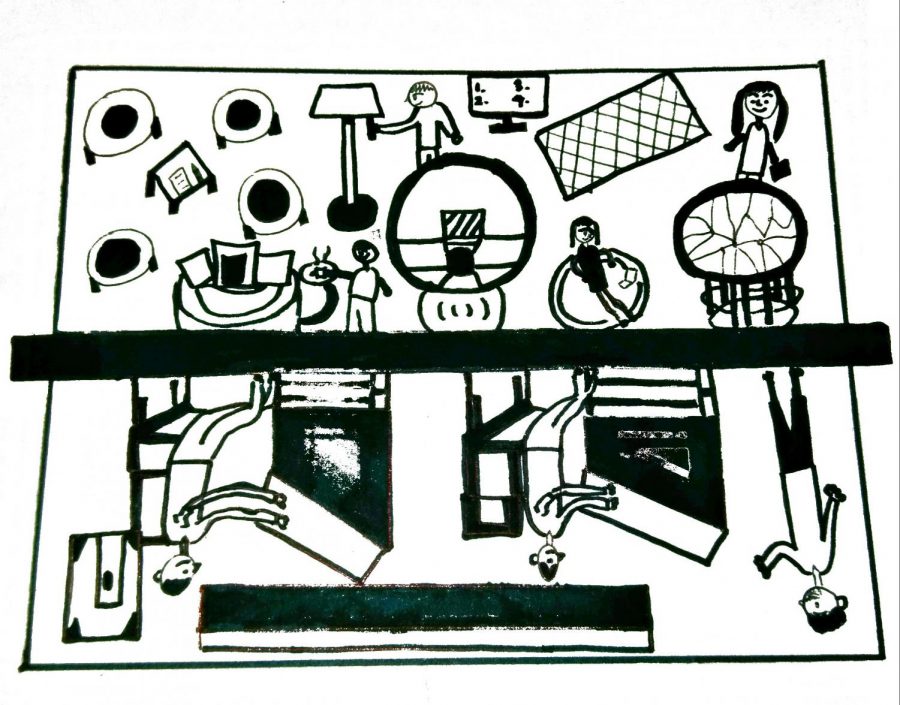Flipped classrooms do not solve our current problems
October 9, 2019
Although flipped classrooms are just starting to become more common within our current education system, they do promise to change the conventional way of learning.
In flipped classrooms, students are introduced to content at home, and practice tackling the course material at school. In other words, this type of learning shifts activities: students are not introduced to course material with the guidance of a mentor, but work through it by conducting research and retrieving information on their own.
Even though many Richard Montgomery students seem to be in favor of such alterations, reversing the order of our current education system will not work, if we persist in repeating what has already failed us.
According to US News and World Report, our contemporary education system is reasonably characterized by corruption, educational inequity, lack of advancement and innovation, and STEM knowledge that simply remains in books, without any indication of practical use. Students spend almost one-third of their day in school, focused on receiving good grades, turning in their work on time and practicing the qualities of a good student. In today’s society, the expectations and standards have exceeded any sort of boundary that has been put forth and students—with or without their permission—are obliged to adhere to these demands. Most of the time, scholars feel trapped onto this transparent box of outdated training methods and indolence, striving to grasp at any change without brainstorming the possible consequences.
Several students support the idea of flipped classrooms, because it is a novel idea. But how will those modifications contribute to a better education system? How can a system that only “backpedals” its current flow change students’ pedagogical trajectory and train of thought?
Students will continue to have the same amount of homework, if not, even more, because they will have to rely completely on their capacity and critical judgement in order to determine which items of information are sufficient and which are not.
Flipped classrooms, also, exacerbate digital division. Modern society is governed by digital technology and machinery, and most of the activities that are incorporated into flipped classrooms involve digital access, which, in turn, can create a barrier for students that have a limited income, or access to resources.
Heavy reliance on student motivation. Students already have a prodigious workload and in combination with extracurricular activities, part-time jobs, and socialization, it can induce more psychological distress. This mode of operation fosters self-motivation. However, some students are not as motivated as others. Therefore, this forms a gap which cannot be filled if students are not goal-oriented.
Adopting a system that promotes technological reliance. Do you genuinely believe students will spend many hours in front of a computer watching lectures? According to a Huffpost article, titled as “8 Key Differences between Gen Z and Millenials”, Generation Z’s learning habits surely differ from previous generations, due to their excellent use of technology and constant media consumption. However, this can be considered as their main weakness, since scholars are dependent on technology to solve their problems. We should delve into the formation of a system that not only embraces this generation’s pedagogical needs, but also nourishes their yet uncultivated characteristics that have been weighed down by the thick layer of today’s technological environment.
It is untenable for this generation, which is distinguished for its passionate temperament and highly resourceful nature, to adjust to such a lackadaisical system. It does not align with any of the needs of today’s students and fails to nurture their principles. Reversing the typical movement of the present education system, which is deemed flawed, concludes to a vicious circle that will bring about the same pitfalls, only in a contrary way.
Education should not be contemplated as a form of trial operation, but as a solid foundation that reinforces moral principles and virtues.


